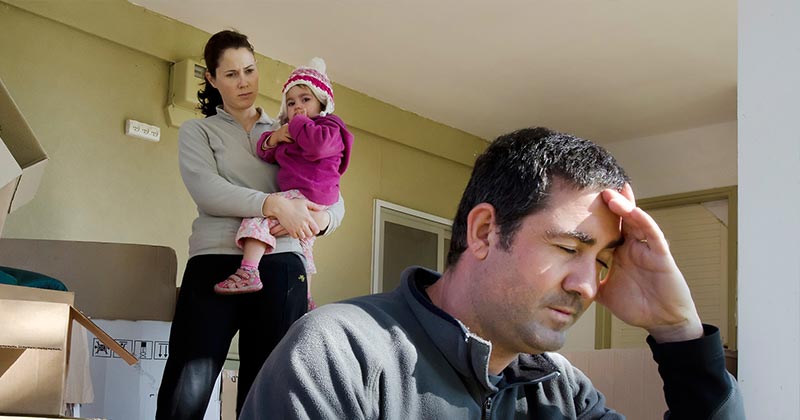In some child custody cases, the court may find one parent “unfit” or incapable of caring for their child. This does not happen often, as there are stringent standards in considering one an unfit parent. But when it does happen, that parent loses all parental rights – not only child custody, but also visitation and decision-making for the child. The other parent will then have sole custody, or another guardian such as a grandparent will be granted custody rights.
What makes an unfit parent under Georgia law? Let’s take a look at the factors that the court examines.
Factors That Make An Unfit Parent
In every Family Law case involving minor children, the court understands that no parent is perfect. Mothers and fathers all have normal shortcomings, which don’t automatically make them incapable to parent. But the judge will question the fitness of a parent who jeopardized (or allegedly jeopardized) the welfare of the child by:
- abandoning the child
- abusing the child or treating them with cruelty
- exposing the child to immoral or obscene situations
- failing to provide the child’s necessities.
When the question of parental fitness arises, the judge will likely order a child custody evaluation. A professional evaluator will be brought in to further examine various aspects of the case and make a recommendation to the court. These are the 10 main factors that an evaluator looks at to determine whether a parent is unfit:
- Age-appropriate limits for the child. Does the parent allow the child to engage in activities that require maturity beyond their age (being out late, drinking, etc.)? Do they expose the child to media with adult ratings?
- Responsiveness to the child’s needs. Basic needs such as food, shelter, and clothing must be fulfilled, but there are other child-rearing essentials that a parent should be sensitive to. These include space to study, socialization, parental guidance, and emotional availability.
- Childcare involvement. The parent’s prior role in child-rearing will be reviewed, not just their current relationship with the child. It is not a good sign if a mom or dad relied on the other parent (or on someone else) to fulfil daily responsibilities such as the child’s meals, hygiene, schooling, and extra-curriculars.
- Relationship with the other parent. While separated or divorced parents are not required to be friendly with each other, the court will not look favorably on a parent who is antagonistic towards the other party. This includes picking fights with the other parent, belittling or insulting them, and talking negatively about them to the child and to others.
- Child abuse. A history of child abuse is a serious factor for the court, especially if Child Welfare Services was involved. The evaluator will examine if the abuse claim has been substantiated and investigated, and if the current situation has changed.
- Domestic violence. Even if the violence was not directed at the child, the court will not look kindly on violence against the other parent or any display of cruelty witnessed by the child.
- Substance abuse. If there is evidence that a parent has substance abuse issues (alcohol, prescription drugs, or illegal drugs), a specific assessment will be conducted to determine the extent of the issue. Note that even decriminalized substances such as marijuana are included in this consideration.
- Psychiatric illness. Having a mental health condition does not automatically mean a parent is unfit. However, they’ll have to show that that they are getting treatment for it, and that they are not a danger to the child.
- Social functioning. A parent’s social wellness affects the child they are raising. If a parent has a social issue, such as being in constant quarrel with neighbors or refusing to go out among people, it can be taken as a negative indicator of their parenting.
- The child’s attitude toward the parent. The evaluator will put weight on how the child feels about the parent. Does the child feel comfortable around them? Do they communicate well? Or is the child afraid, anxious, or withdrawn around the parent?
The determination of an unfit parent does not solely rely on an evaluator’s observations. Many types of evidence are considered, such as medical records, police reports, Child Services records, prior evaluations by doctors, and statements of other adults around the child’s life.
Contact A Family Law Attorney To Protect You
If you feel that your ex-partner would be an unfit parent, or if you are the one being alleged as an unfit parent, you should reach out to a Family Law attorney. The termination of parental rights is a serious matter that can diminish any parent’s relationship with their child and also affect the child’s development. A competent lawyer can guide you on your best options and fight with you for your child’s best interests.
If you are in Gwinnett County or surrounding areas, call Attorney Sharon Jackson. As an experienced Family Law attorney, she has effectively fought for the rights of parents and helped them protect their children’s future. Call Attorney Jackson today at (678)436-3636 to schedule your consultation. You may also contact her through our online form.
